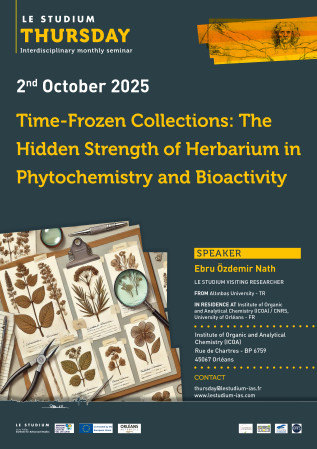Time-Frozen Collections: The Hidden Strength of Herbarium in Phytochemistry and Bioactivity
Hôtel Dupanloup
1 rue Dupanloup
45000 Orléans
France
Presentation
Herbarium, often perceived as static collections of pressed plants, are in fact dynamic scientific resources that preserve invaluable chemical and biological information. Beyond their role in taxonomy and biodiversity documentation, herbarium specimens offer unique opportunities for phytochemical profiling and bioactivity studies, even decades or centuries after collection. A plant species undergoing phytochemical or bioactivity studies must have a registered and numbered specimen in the herbarium. This allows for verification of the plant species being studied.
Herbariums have also become centers for collecting information about the traditional uses of plants. Ethnobotanical collections of plants used for medicinal, cosmetic, and food purposes in different cultures will inform future generations about their historical uses. Another importance of herbarium is that they serve as museums where information about endangered species is preserved, especially today, when biodiversity is decreasing due to global warming and climate change.
This seminar will explore how herbarium serve as “time capsules” for drug discovery, ethnopharmacology, and natural product research, highlighting their strategic importance in bridging biodiversity conservation with modern biomedical science. After this seminar, we will learn how to prepare our own herbarium materials and plant identification using plants we collect from nature.
Speaker
LE STUDIUM Visiting Researcher
FROM: Altınbaş University - TR
IN RESIDENCE AT: Institute of Organic and Analytical Chemistry (ICOA) / CNRS, University of Orléans - FR








